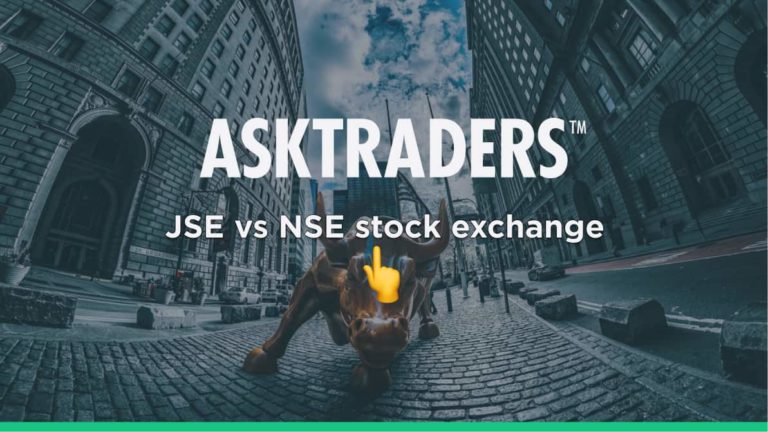
Overview of the JSE
In 1887, at the height of South Africa's first gold rush, the Johannesburg Stock Exchange (JSE) was founded. The Financial Markets Act of 1947 was the first legislation to handle the financial markets expressly.
The JSE joined the World Federation of Exchanges the next year, in 1964, and upgraded to an electronic trading system in the early 1990s. In 2005, the bourse was demutualized and subsequently listed on its own market.

In 2004, the JSE launched Yield X for the trading of interest rate and currency products, following the 2003 establishment of an alternative exchange, AltX, for listings of small and medium-sized enterprises.
In 2001 and 2009, the Johannesburg Stock Exchange (JSE) acquired the South African Futures Exchange (SAFEX) and the Bond Exchange of South Africa (BESA), respectively.
Currently, the JSE offers access to five distinct financial markets, including stocks, bonds, financial derivatives, commodities derivatives, and interest rate derivatives.
The Johannesburg Stock Exchange (JSE) is one of the most technologically advanced stock exchanges in the world, allowing investors to close trades with the click of a mouse.
Overview of the NSE
Kenya's Nairobi Stock Exchange (NSE) is a small market that engages in some degree of speculation. The Exchange was initially established in 1954.
The Exchange is the fourth most important stock exchange in sub-Saharan Africa. There are over fifty listed companies, and the overall market capitalization is approximately $ 1.9 billion. In 1995, there were twenty licensed brokers and fifty-plus listed companies.
The NSE's market capitalization climbed from 1,7 billion dollars at the end of 1996 to $2.24 billion at the end of May 1997. In 1996, 114 million shares were traded on the New York Stock Exchange, resulting in a total turnover of $75 million.
Lack of market liquidity is a concern for a number of emerging markets, including the NSE, which is one of them. Both foreign investment on the Nairobi Stock Exchange and foreign ownership of firms are subject to the application procedure.
The law restricts foreign investment in the local subsidiaries of foreign-controlled corporations in order to encourage investment in Kenyan enterprises and discourage foreign investment in the local subsidiaries of foreign-controlled companies.
In an effort to attract international investment through the Nairobi Stock Exchange, the Kenyan government has adopted a number of reforms during the past few years.

The Exchange was opened to overseas investors for the first time in January 1995, however there was a limit of 20% for institutions and 2.5% for individuals on their shareholdings.
Recently, the restriction on foreign investment was increased to 40% for institutions and 5% for individuals; nonetheless, less than 20% of the 58 already listed firms are open to investment from foreign investors.
Since 1995, the Kenyan government has eliminated exchange controls, permitted foreign portfolio investors to trade on the Nairobi Stock Exchange and in gilts, and implemented a favourable tax environment.
Non-residents are subject to a 10% dividend withholding tax (residents pay 5%), however there is no capital gains tax, stamp duty, or value-added tax in Kenya. In addition, the development of a central depository system is projected to expedite the clearing and settlement processes.
Monday through Friday, between the hours of 09:00 and 15:00, business is done. Commissions imposed by the 20 member brokerages have been cut from 2.5% to a sliding scale ranging from 1.1% to 2%.
Regulation on the JSE
The Financial Markets Act from 2012, the JSE Rules and Directives from 2001, and the Financial Intelligence Centre Act from 2001 constitute the regulatory framework that governs the JSE's role as a market regulator and the compliance responsibilities of authorised JSE members.
The JSE Market Regulation division is responsible for regulatory tasks, such as monitoring trade in the various JSE markets to identify potential cases of market abuse and overseeing JSE members' compliance with their individual regulatory requirements.
In order to discover suspected instances of insider trading and market manipulation, the JSE Market Regulation division monitors and analyses activity in JSE-listed securities using electronic surveillance technologies.
The Financial Sector Conduct Authority (commonly known as FSCA) is responsible for conducting investigations into potential cases of market abuse and enforcing the law if necessary.
All potential cases of insider trading and market manipulation that the JSE Market Regulation division finds and deems deserve further investigation are reported to the FSCA. The FSCA is responsible for determining whether additional investigation is warranted in these circumstances.
The Financial Services and Commodities Authority routinely publishes updated information regarding the progress of its ongoing market abuse investigations.
Included in these probes would be issues presented by the JSE Market Regulation division.
Regulation on the NSE
The National Securities Exchange (NSE) is overseen by Kenya's Capital Markets Authority (CMA). The passage of legislation known as the Capital Markets Act, Chapter 485A, in the year 1989 led to the formation of the Capital Markets Authority (CMA) in the capacity of a legislative agency.
It is entrusted with the primary role of both regulating and establishing an orderly, fair, and efficient financial markets in Kenya with the purpose of promoting market integrity and investor confidence.
Markets on the JSE

In its more than 120 years of operation, the JSE's Equity Market has effectively matched buyers and sellers seeking in exposure to South African listed firms, dual listed companies from across the world, and a variety of other listed items.
The JSE Equity Market is comprised of two components, namely the Main Board and the AltX. Because of this, firms and investors have access to a wide range of listing and investment options that are suited to their specific needs.
A considerable number of companies that are listed on the JSE are also listed on other international stock markets.
Through the JSE Equity Market, investors can trade a vast array of products, including Warrants, Exchange Traded Products (ETPs) such as Exchange Traded Funds and Exchange Traded Notes, Specialised Products, and many others.
Through its high-performance market data system and its world-class Millennium, IT trading system, the market enables its members to complete trades efficiently and swiftly.
Markets on the NSE
Kenya’s Nairobi Securities Exchange (NSE) Ltd. is its principal stock exchange. They offer a digital platform for the listing and trading of all types of securities.
Nairobi Securities Exchange Ltd. is the second exchange in Africa to demutualize and list its shares, following the Johannesburg Stock Exchange.
Currently, the NSE provides a trading platform for purchasing and selling stocks, bonds, and quasi-equity securities such as REITs. In addition, the NSE is planning to introduce the trading of derivatives.
Multiple performance indexes are also available on the NSE, including:
- NSE ALL SHARE INDEX
- NSE 20 SHARE INDEX
- NSE 25 SHARE INDEX
- FTSE NSE Kenya 15 Index
- FTSE NSE Kenya 25 Index
- FTSE NSE Kenya Govt. Bond Index
- FTSE ASEA Pan African Index
Advantages of investing on the JSE
The returns on investments in stocks have historically been the highest when compared to those of other types of assets, such as savings accounts at banks and real estate.
When you invest in stocks, you position yourself to have a good chance of achieving returns that are higher than the rate of inflation. The target range for South Africa's annual inflation rate, which has been established at between three and six percent.
For this reason, the return on investment must be more than six percent in order for there to be any possibility of making a profit.
According to the findings of recent study, the return on shares that were traded on the JSE has, in the vast majority of cases throughout the course of the last century, exceeded this proportion. This is based on the findings of research that was conducted relatively recently. The value of a company's shares almost always increases when assessed over a more extended period of time.

Advantages of investing on the NSE
When stock traders invest on the NSE, they gain exclusive access to one of Africa's economies that is growing at the highest rate, as well as fresh and exciting prospects to realize growth along with this rapidly developing nation.
Several of the companies that are listed on the NSE in Kenya are hailed as being in the vanguard of Africa's ongoing industrialization. As a result, purchasing these stocks provides a solid opportunity for portfolio diversification as well as the achievement of profits over the course of the long term.




